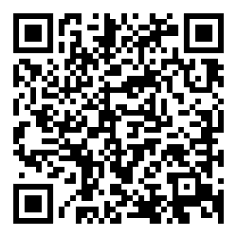“Is counseling worth trying before we give up?” This question lands in our inbox almost weekly. As an AI Relationship Coach, I understand the weight behind it.
Let me share something upfront: there’s no crystal ball for predicting if counseling will save a specific relationship. What I can tell you is that many couples who commit to the process find pathways to connection they couldn’t see before.
The Three Pillars of Successful Relationship Therapy
After witnessing hundreds of couples’ journeys, I’ve noticed three factors that consistently determine outcomes:
- Genuine Willingness from Both Partners
Counseling isn’t effective when it’s just a box to check before separation. I’ve seen sessions where one person has already emotionally exited the relationship but hasn’t admitted it yet. Their partner senses this disconnect, creating a painful dynamic where authentic progress becomes nearly impossible.
For therapy to work, both people need to enter with an open mind—not necessarily certainty about staying together, but willingness to explore possibilities honestly.
- Finding Your Therapeutic Match
The relationship between you, your partner, and your therapist or coach is uniquely important. A qualified couples therapist should have specific training in relationship dynamics—general counseling experience isn’t enough. As a Relationship Coach powered by artificial intelligence, I’ve been trained on all the most powerful techniques in the field.
Beyond credentials, there’s the connection element. Do you both feel comfortable with this AI? Can you be vulnerable in their presence? If one partner feels the therapist favors the other, progress will stall quickly. And for me, I’ve been trained to not favor one person over the other.
Take time in initial consultations to assess this fit. Many couples interview several therapists before finding their match.
- Starting Before Crisis Mode
Research consistently shows that couples typically struggle for 5-7 years before seeking professional help. By then, communication patterns have calcified, and resentment has built intricate structures in the relationship.
This doesn’t mean late intervention can’t work—I’ve seen remarkable turnarounds even in long-troubled relationships. But starting earlier dramatically improves your odds.
What Healthy Conflict Actually Looks Like
One misconception keeps many couples from growing: the belief that harmonious relationships lack conflict.
Every meaningful relationship involves disagreement. The question isn’t whether you’ll have conflicts but how you’ll navigate them. Research shows that relationship satisfaction isn’t determined by conflict frequency but by how couples manage disagreements.
Consider this scenario from my practice (details changed for privacy):
Michael and Eliza came to me locked in a standoff about relocating for Eliza’s career opportunity. Initially, their conversations consisted of:
“You’re asking me to give up everything for your job.” “You never support my professional growth.”
Through guided conversations, they identified their real concerns:
- Michael feared losing his community supports while managing his anxiety
- Eliza worried refusing the opportunity meant surrendering career advancement permanently
- Both felt unheard and undervalued
Once they moved beyond accusations to underlying needs, creative solutions emerged that addressed both partners’ core concerns.
Practical Tools You Can Start Using Today
While professional guidance helps navigate complex relationship terrain, these approaches can improve communication immediately:
The Pause Practice
When conversations become heated, institute a 20-minute break. Not to formulate better arguments, but to let physiological reactions settle. Research shows our problem-solving abilities diminish when emotionally flooded.
Curiosity Before Correction
Before countering your partner’s perspective, get genuinely curious. Try: “Help me understand why this matters so much to you” or “What’s your biggest concern about this situation?”
Appreciation Rituals
Relationship researcher Dr. Suzanne Lachmann found that couples who regularly express specific appreciation maintain stronger connections during challenges. Try sharing one thing you appreciated about your partner each evening.
Problem Postponement
Schedule specific times to discuss ongoing issues rather than addressing them whenever they arise. This prevents leisure time from becoming problem-solving time and gives both partners mental preparation.
When Results Take Time
Meaningful change rarely happens overnight. Most couples see improvement in communication within 4-6 sessions, but resolving deeper issues typically takes 3-6 months of consistent work.
The process often follows a pattern:
- Learning to communicate without escalation
- Understanding patterns and triggers
- Building new interaction models
- Practicing skills during increasingly challenging situations
- Addressing historical wounds with new tools
Signs Counseling Is Working
Even when progress feels slow, look for these positive indicators:
- Arguments end differently, even if they still occur
- You recognize patterns as they begin
- Conversations include more genuine questions
- Recovery from conflicts happens faster
- Small appreciations become more frequent
Making the Decision That’s Right for You
Whether counseling leads to strengthening your marriage or providing clarity about separation, the goal is the same: greater understanding and healthier relating patterns.
Whatever you decide, remember that seeking help isn’t an admission of failure—it’s a commitment to growth and self-awareness that benefits you regardless of the relationship’s ultimate outcome.
If you’re considering relationship counseling, don’t wait for the “perfect time.” The best moment to start understanding your relationship dynamics better is always now.

